【新唐人2011年4月15日訊】在中共政府的預算中,被踢爆有多數被認為「不適宜」公開的條目,都隱藏在「其它支出」中。而在「「其它支出」類別裡面,還有「其它」項,凡是不好處理、超標的費用都羅列其中。而所謂的「維穩費」呢?是不是也隱藏在「其它」項目裡面?請看下面這則報導:
近年,中國的審計部門在審計中發現,“其它支出”的名目使用頻繁,金額很大,尤其在基層政府的財政開支中更加嚴重。《經濟觀察報》10號報導,近幾年來一些地方政府的“其它支出”,佔財政總支出的比重非常高,有的在30%甚至40%。
《法國國際廣播電臺》11號在相關報導中說, “在如迷宮般的預算條目中,『維穩』等支出是如何做大膨脹” ,《經濟觀察報》從「側面」回應了這個說法。
《經濟觀察報》舉出,安徽省宿州市靈璧縣審計局在審計中發現,不好處理、超標的費用都羅列在“其它支出”中。一位財政官員也說,“支出能靠民生的早就靠了,有一些不便暴露的就放在其它支出”。
而今年財政部公布的預算報告估計,中共政府今年花在警備、國家安全、武裝民兵、法庭與監獄等「維穩」費用,將達6240億人民幣。
美國哥倫比亞大學政治學博士李天笑:「2007年以後,把它(維穩費)納入了…按照功能來分,作為『國家安全費用』一大類,這其中主要包括像武警、公安、國安,還有檢察院、法院、司法、行政、監獄勞教、國家保密等等這些人的花費和開支。但這裡面有一點很重要,就是它這個開支只是按照這種功能,發到這些人頭上去了,至於這些人在幹甚麼事情,它是不管的。」
國外媒體分析指出,中國軍事國防的實際支出,其實遠超過官方預算,因為必須納入如進口武器等關鍵項目,但同樣的國內安全預算,也沒有包括所有的所謂「秘密監控費用」。
美國哥倫比亞大學政治學博士李天笑:「另外光北京這次兩會就有70萬的紅袖章,這些人的費用﹔另外像鎮壓法輪功,當時在2001年的時候,整個國民收入也就是2萬多億,那時候花了1/4的錢鎮壓,廣場上一天就要花200萬,每年都花大量的金錢用在鎮壓人民的項目上。」
《經濟觀察報》的報導還舉出,“其它支出”類目如此受地方政府青睞的原因有二:一是看不到具體支出用途,人大審議時好通過;二是預算法規定,年度中財政資金在科目間“流轉”不需人大審批。如2009年被調查的湖南省瀏陽市廣電局長的奢侈消費清單中:足浴中心、餐廳包廂、西餐廳、水療中心等,都是通過“其它支出”列出來的。
重慶市民李運生向《自由亞洲電臺》說,在民主國家,選民對各級政府財政預算有監督權,各種媒體也能對官員挪用公款進行有效監督,但目前在中國是黨政官員自己監督自己,
新唐人記者李庭、周天綜合報導
====
Behind 』Other Expenses』
Reportedly, the Chinese Communist Party』s (CCP)
government's budget has many entries unsuitable
for the public eye, thus hidden as 『Other expenses』.
The 『Other expenses』 category has 『Other』 option.
All things difficult to deal with or exceeding budget
are listed here. Would by any chance the so-called
『maintaining stability fee』 hide in the 『Other』 items?
In recent years, China's Audit Department found
that the nomenclature of 'Other expenses' was used
frequently, and the monetary amount was huge,
especially at the grassroots level of government
expenditure. Economic Observer reported
on the 10 April,that in recent years 'Other expenses'
of some local governments has a very high share
of the total expenditure, some is 30% or even 40%.
Radio France Internationale reported on April 11:
”In the labyrinth of the budget, how did the 『stability
maintenance fee』 and 『Other expenses』 expand?”
Economic Observer responded to this issue 『edgewise.』
Economic Observer wrote that an Accounting Office
in Lingbi County, Anhui Province, found that tricky
and excessive costs are all listed in the category
'other expenses.'A financial official also said,
”Expenditures which relate to people's livelihood
are the same, just some inconvenient to reveal
are included in the 『Other』 expenses.”
Ministry of Finance announced this year's budget,
estimating that expenses on national security,
armed militia, courts, prisons and other
『stability maintenance』 costs of the Chinese regime
this year will reach RMB624 billion.
Li Tianxiao (Ph.D.,Polit.Science, Columbia Univ.):
”After 2007, it (『stability maintenance fee』) was
in accordance with the feature, listed as the cost
of national security, which includes armed police,
public security, national security, prosecution, courts,
judicial, administrative, prisons, forced labor camps,
national secrets. But the important point is that
the funds are distributed to them under those names,
however nobody supervises after that
what people are exactly doing with them."
Foreign media analysis pointed out that China's
actual military and defense spending is far more
than official budgets, because the import of weapons,
etc., must be included as key items. Similarly,
domestic security budget does not include
the so-called 『secret monitoring costs.』
Li Tianxiao: ”Besides, in Beijing there are 70 million
of the two red armbands, the cost of these people?
Also the persecution of Falun Gong, in 2001 the
national revenue was over RMB2 trillion and
CCP spent a 1/4 of it on Falun Gong suppression.
It spends RMB2 million a day on Tiananmen Square.
A lot of money are spent on people』s suppression.』
Economic Observer reported, there are two reasons
why 'Other expenses' category is so favored
by local governments. Firstly, one can not find out
the specific objects of expenditure and it』s easier
to be approved National People's Congress (NPC).
Secondly, according to the budget law, during
a fiscal year financial resources can 'flow' between
subjects without Congress』 approval. For example,
in 2009, an expenditure list of the Director of Radio,
Film and Television in Liuyang, Hunan Province,
showed spa center, restaurants, private rooms, etc.,
which were all included in the 'Other expenses'.
Li Yunsheng from Chongqing told Radio Free Asia,
that in a democratic country, voters have
the supervision of government』s budget at all levels,
and media can also be effective in monitoring
officials』 defalcation. But in China it is the CCP
and government officials that monitor themselves.
NTD reporters Li Ting and Zhou Tian
看下一集

【禁聞】民調:67%中國人支持資本主義

【禁言博客】最牛的馬屁精遭痛駡冤不冤

【禁聞】醫療昂貴重似山 過度治療猛於虎

【禁聞】發改委“摁葫蘆”3月通脹仍超高

【禁聞】艾未未失蹤兩週 家人要求依法辦事

【禁聞】維穩至上 辛亥革命主題辯論成禁忌

【禁聞】官捧民厭 重慶紅色頻道收視慘跌

【禁聞】官捧民厭 重慶紅色頻道收視慘跌

【禁聞】中共大整網路公關行為 難服眾

【禁聞】人民的血淚──強拆 國家的禍根?
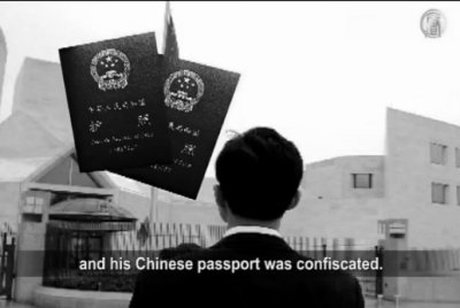
【禁聞】中共控制護照簽證 律師:善待人民
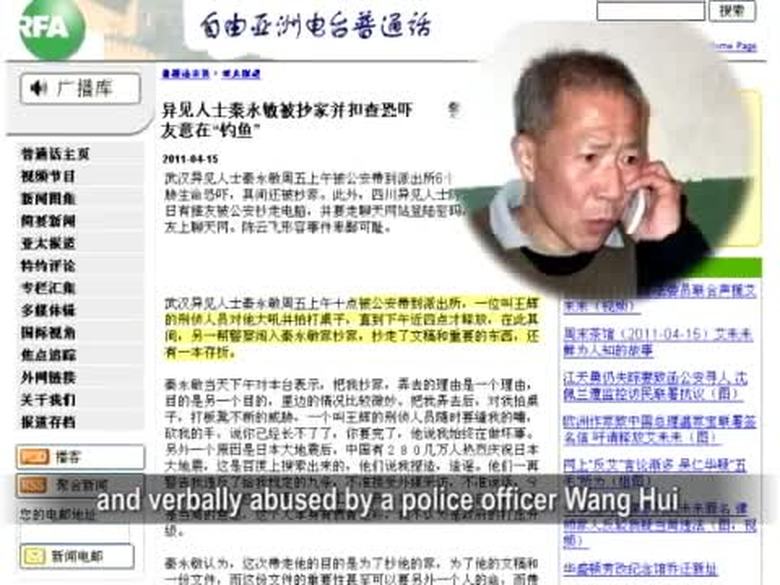
【禁聞】中共“秋後算賬” 上千人遭傳訊
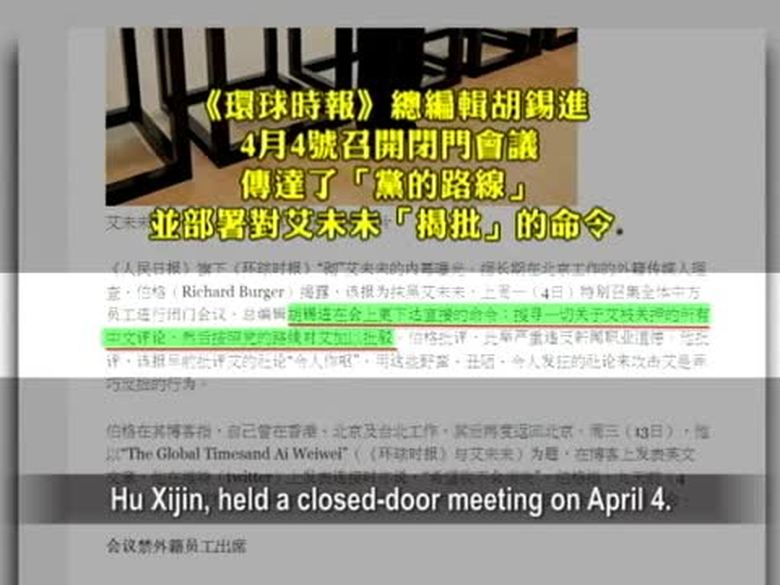
【禁聞】民眾識破官媒“抹黑艾未未”
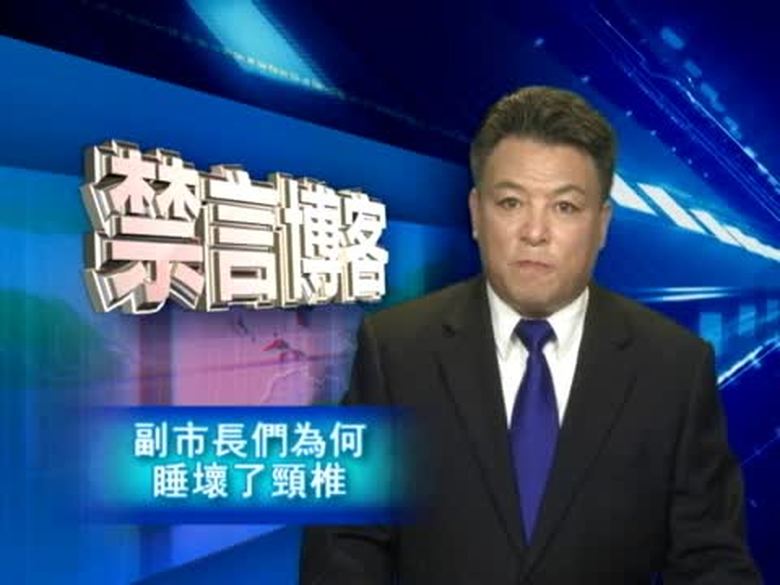
【禁言博客】副市長們為何睡壞了頸椎
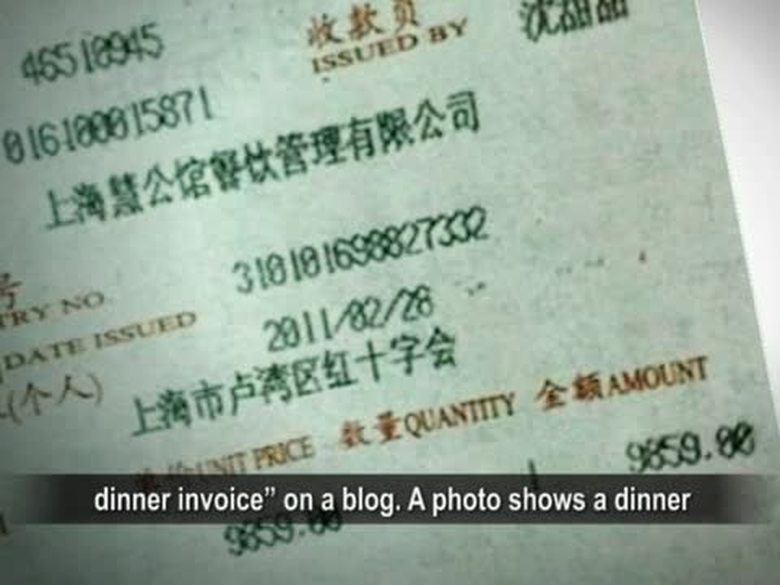
【禁聞】紅十字會天價飯局 中石化百萬茅臺

【禁聞】批“穿越劇” 大陸影視再向左








